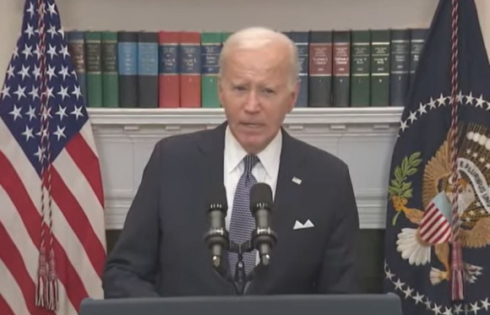
Justified by expected ‘controversy’ and ‘protests’
The University of Pittsburgh waited until two days before a speech by Ben Shapiro, the conservative pundit, to demand more than $5,500 in security fees from the event organizers, citing “controversy” and expected “protests,” according to their lawyers.
The Alliance Defending Freedom threatened to bring litigation against the public university on both constitutional and contractual grounds for its behavior toward the College Republicans and Young America’s Foundation, which promised to pay the fee “in protest.”
Pitt was notified “several months in advance” that Shapiro would be speaking, and the contract it gave YAF specified the university would provide all “security personnel deemed necessary” for the event, according to an alliance letter to Pitt dated Monday.
But Pitt’s own “Scheduling and Protest Guidelines” policy ignores the contractual language, giving administrators “unbridled discretion” to charge fees based on Shapiro’s viewpoint and “listeners’ potential reactions.”
The taxpayer-funded university gives itself the freedom to ignore the security and cost estimates provided by its own campus police, allowing the dean of students “or their designee” to “increase the security” based on a personal evaluation, according to the alliance:
While the Guidelines contain some general criteria to guide University administrators in deciding whether to assess security fees on student groups, the criteria are not objective and the administrators are not limited by those criteria. Moreover, the Guidelines do not explain how the criteria are to be weighed or quantified. Instead, the University is free to assess security fees in its sole discretion.
Subjective criteria include “health and safety concerns, other events taking place on campus, prior security concerns at speaker’s past presentations” and recommendations from campus police, but “nothing prevents” Pitt from adding unwritten factors to any given event evaluation, the alliance wrote.
“Prior security concerns” and “other events” are themselves content-based criteria because they “require university officials to factor safety concerns created by protestors at the University of Pittsburgh and at other universities.” This amounts to “an unconstitutional heckler’s veto that stifles minority viewpoints.”
The evidence cited for the alliance’s claims includes a Nov. 13 email from Lt. James Kenna that said he calculated the $5,500 fee based on “some sort of controversy” and “things like protests” in response to Shapiro’s speech.
The administration itself suggested that Shapiro’s views were worthy of protest, “prominently” displaying a banner on its website days before his lecture that “encouraged students to ‘hold a peaceful counter-demonstration'” if they disagreed with him.
The public university must rescind its demand for the $5,500 payment to avoid breach of contract, and it must revise its guidelines to adopt “specified objective criteria” in university policy for demanding security fees to avoid a constitutional challenge, the alliance said.
“Speech isn’t free if the speaker can be forced to pay money simply because somebody may object,” Jonathan Larcomb, senior counsel for the alliance, wrote in a press release. “The Supreme Court has specifically stated that security fees, such as the ones Pitt has assessed, aren’t constitutionally permissible.”
YAF threatened to sue the university immediately after the security fee was demanded. A Pitt spokesperson told The College Fix at the time the university was treating Shapiro’s event as it treats events with political candidates, but also cited the “health and safety” concerns that YAF’s lawyers consider subjective.
Read the alliance letter and release.
MORE: Pitt demands $5,500 security fee to let Ben Shapiro speak
IMAGE: Young America’s Foundation
Like The College Fix on Facebook / Follow us on Twitter





Please join the conversation about our stories on Facebook, Twitter, Instagram, Reddit, MeWe, Rumble, Gab, Minds and Gettr.